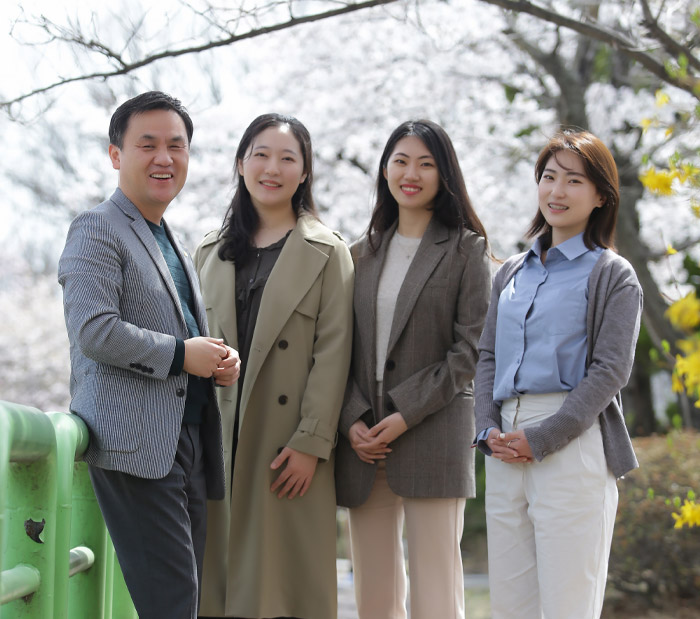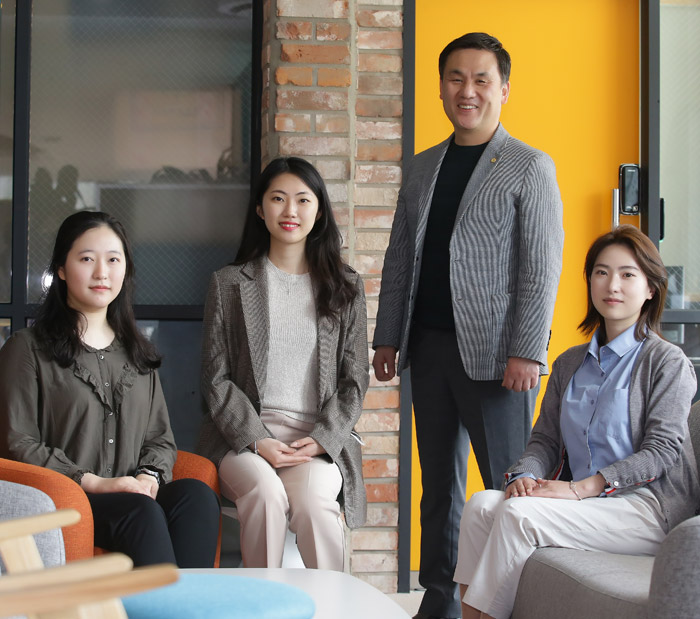Research Stories
A Study on the Changes of Students' Social Emotional Experience and Learning Patterns then and now COVID-19 pandemic
All fall in Action oriented, Perseverance, Relationships with Adults, and Optimism Concerned about development and educational deficits on elementary school students and socioeconomic groups
Education
Prof.
BAE, SANG HOON
The Education and Future Research Institute (Director Bae Sang-hoon*) published its findings on the changes in students' social emotional experiences and learning patterns around COVID-19. This study was conducted as part of a global joint study conducted with Harvard University's Partnership in Education and Resilience (PEAR) Institute and the Free University of Berlin, which is world-renowned in children's social and emotional development and after-school activities.
※ Prof. Bae (Department of Education) serves as the Editor in chief of world-renowned journal, International Journal for Research on Extended Education in the field of extra-curricular activities. This study is a pilot study of global joint research led by the World Education Research Association International Research Network and participated by 15 countries.
The research team (Jin Hye-won in master course, undergraduate researchers Jeon Ji-hye, Jeon Min-kyung, Kim li-yeon, and Jo Su-hyun) analyzed how the student's social emotional experience and learning patterns changed between "the second semester of 2019" and "the first semester of 2020 when School was shut." This study used a questionnaire jointly produced by Sungkyunkwan University and Harvard University researchers, and analyzed the response data of 261 elementary school students, 218 middle school students, and 396 high school students.
< Study Contents >
Area | Factor | Source |
Experience of social emotional development | Action Oriented | PEAR |
Perseverance | PEAR | |
Relationships with Adults | PEAR | |
Optimism | PEAR | |
Distress | - | |
Learning ability | Perception on schools | - |
Self-Directed learning | Education and Future Research Institute | |
Collaborative learning | Education and Future Research Institute |
< Harvard Child Development Model>
※ Malti, T., Zuffiano, A., & Noam, G. (2017). Knowing every child: Validation of the holistic student assessment (HSA) as a measure of social-emotional development, Society for Prevention Research.
DOI 10.1007/s11121-017-0794-0
The research team pointed out that all social and emotional development factors fell then and now COVID-19. In particular, it was noted that "action oriented” and "Optimism" have decreased significantly. According to Harvard's child development model, students have experienced active participation in social life by doing various physical activities in the early stages of development, and these participation experiences serve as the foundation for the next stage of social emotional development. For this reason, many developed countries emphasize after-school activities in early childhood. The research team pointed out that “action-oriented” decreased the most in the elementary school group, which was interpreted as a result of the decrease in individual external activities amid limited movements for school, school sports, and after-school activities.
Researchers at the Institute for Education and Future predicted that social distancing under COVID-19 will continue for a while, stressing the need for students to follow quarantine rules while properly doing physical activities such as walking in park with family and friends. He also pointed out that fewer activities and social interactions with peers could seriously affect students' social emotional development, and that parents' special attention and careful guidance are needed to comply with quarantine rules such as wearing masks in well-ventilated spaces.
“Optimism”is a necessary developmental experience, especially at a mature stage on development. According to the research team, this perception has decreased significantly since COVID-19. The research team said that the social situation, in which expectations for the end of COVID-19 are reduced due to repeated large-scale spread of COVID-19, is believed to have had a negative impact on forming a positive attitude toward life.
In addition, the researchers found that the decrease in activities (meeting friends, exercises to relieve stress, etc.) that could gain positive emotions in social communities as students spent more time indoors had a negative impact on forming positive perceptions of life.
The researchers emphasized that positive perception of life is a key factor in enhancing learning participation and academic performance by promoting academic motivation and social exchange. Therefore, special interest and measures are needed for students who are experiencing alienation and depression in isolation.
Professor Bae Sang-hoon, who led the research team, said, "It should be highly appreciated that Korea has maintained the safety and health of the people through K-Discipline. However, it is time to pay attention to the developmental delays and educational deficits of students in the face of the situation where the school's restrictions on schooling and the expansion of non-face-to-face online classes become new normal. "“In particular, if students miss out on the social and emotional experiences they should have at each developmental stage, this may be a difficult developmental loss to recover easily, so special attention is needed in schools and families,” he said. “If we were concerned about technical support for stable online classes as we had to do online classes in 2020, we should now make more efforts to improve the quality of education.” he said. In particular, the education authorities and schools should make a lot of efforts to create class design and evaluation plans to promote vulnerable self-directed learning and cooperative learning in online classes.
The development and learning of students is based on continuous and systematic interaction. If social distance and remote learning are expanded, such intellectual interaction, emotional exchange, and social activities may be reduced. In future society, empathy and consideration are essential competencies to live as mature members of society. Therefore, class design is required to supplement them and parents' attention is required during the time of staying at home.
Finally, Professor Bae noted that the delays and learning deficits of socio-emotional development that appeared before and after Corona 19 were more significant in socio-economic vulnerable groups, and it is an important social and educational task to build an educational safety net for these classes and to take careful care.


